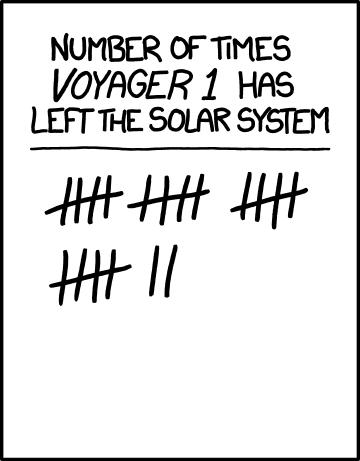Before pluto, after pluto. Is it still the solar system?
Explain your answer.
To add... If our solar system has an edge/end, and our galaxy has an edge/end, and every galaxy we know of us an edge/end.... Why wouldn't the universe have an edge/end?
Beyond that if the universe has no edge/end, couldn't the number of galaxie be infinite instead of numbered as we have them?
The universe could be infinite and unbounded, or there could be an infinite number of universes, but the limits of the
observable universe, which has been expanding for approximately 13.8 billion years - according to the theoretical model which best fits the observations - are determined by the rate of expansion and the distance light can travel in that time. Using Hubble’s Law, which observes that the further a galaxy is from us the faster it is receding, cosmologists can define a Hubble Sphere, beyond which objects are receding faster than the speed of light, and from which no information can reach us. Which is not to say distant galaxies are moving faster than the speed of light, because that of course can’t happen; it’s the expansion of space itself that causes the galaxies to rush away from each other, not that the galaxies moving through space. However, as current cosmological models predict that the rate of expansion of the universe varies over time - recent observations suggests we are in an era of accelerating expansion - then the Hubble Sphere can change size and potentially overtake light which was previously beyond it’s parameters.
The question is often asked, if the universe is expanding, what is it expanding into? The answer often given by cosmologists, is that since time and space are qualities specific to our universe, they cannot exist outside of it, therefore there can be no space or time into which the universe is expanding. By this token, even a finite universe has no meaningful edge or boundary; it may help to remember that while the universe is known to be expanding, it is not doing so outward from a particular defined point. It’s expanding homogeneously, that is to say equally everywhere at once.

